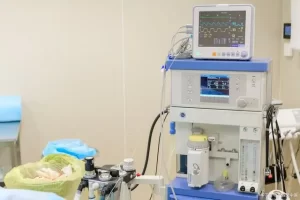When considering the purchase of an anesthesia machine, it is crucial to take several factors into account. One of the key considerations is the price of the anesthesia machine. Understanding the factors that influence anesthesia machine prices is essential for making informed decisions and ensuring that the chosen machine meets the specific needs of healthcare facilities.

Factors Affecting Anesthesia Machine Prices:
Technology and Features:
The technology and features incorporated into an anesthesia machine significantly impact its price. Advanced machines equipped with cutting-edge technology, such as integrated monitoring systems, touchscreen interfaces, and automated controls, tend to be more expensive. These features enhance precision, patient safety, and overall user experience, contributing to the higher cost.
Brand and Reputation:
The reputation and brand value of the manufacturer also play a role in determining anesthesia machine prices. Established and renowned brands often command higher prices due to their track record of delivering reliable and high-quality products. Buyers may choose to invest in well-known brands to ensure product performance, support, and long-term reliability.
Customization and Accessories:
The level of customization and additional accessories available for an anesthesia machine can impact its price. Customizable options that cater to specific needs or specialized procedures may increase the overall cost. Similarly, the inclusion of accessories like vaporizers, breathing circuits, and monitoring modules can influence the final price.
Quality and Durability:
Anesthesia machines constructed with high-quality materials and components tend to have higher price points. The durability and longevity of the machine, as well as its ability to withstand rigorous usage, contribute to its value. Investing in a reliable and durable anesthesia machine can result in long-term cost savings by reducing the need for frequent repairs or replacements.
Regulatory Compliance:
Anesthesia machines that meet strict regulatory standards and certifications may have higher prices due to the additional costs associated with compliance testing and quality assurance. Compliance with safety and performance regulations ensures that the machine meets industry standards and promotes patient safety.
Making Informed Decisions:
When considering the purchase of an anesthesia machine, it is essential to evaluate the specific needs of the healthcare facility and balance them with the available budget. Here are some recommendations for making informed decisions:
Assess Requirements: Determine the necessary features, technology, and accessories required to meet the facility's needs and prioritize them accordingly.
Budget Considerations: Set a realistic budget range based on the available funds and explore options within that range. Consider the long-term value and return on investment when comparing prices.
Research and Compare: Conduct thorough research on different brands, models, and suppliers. Compare prices, features, warranties, and customer reviews to make an informed decision.
Consult with Experts: Seek guidance from anesthesia professionals, biomedical engineers, and suppliers who can provide valuable insights and recommendations based on their expertise.
Conclusion:
When purchasing an anesthesia machine, understanding the factors that influence prices is crucial. The technology and features, brand reputation, customization options, quality, durability, and regulatory compliance all contribute to the overall cost. By considering these factors, conducting thorough research, and seeking expert advice, healthcare facilities can make informed decisions and choose an anesthesia machine that aligns with their specific requirements and budget.